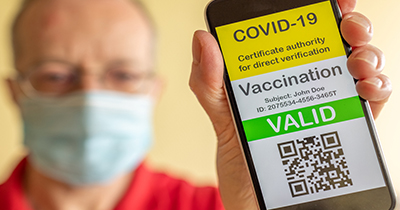Ready to Get Started?
Please give us a call or fill out our contact form and a member of our friendly team will be in touch.
We’re ready to help you today!
The Biden administration this month announced sweeping new vaccine and testing rules for health care workers, federal contractors and private-sector businesses as the federal government continues its fight against COVID-19.

The rules, implemented by executive order and a forthcoming emergency rule from the Occupational Safety and Health Administration (OSHA), mean that:
Companies will also have to provide employees with paid time off to get vaccinated or recover from any side effects of their vaccination, according to the Society for Human Resource Management (SHRM). Companies found to be in violation of these rules could face OSHA penalties of up to $14,000 per occurrence.
The new federal vaccinate mandate is expected to impact an estimated 80 million private-sector employees alone, according to the Biden administration, and sets up a host of HR and administrative challenges. If any of the above stipulations apply to your company, what should you be doing now to prepare for OSHA's coming vaccination rule?
Develop a plan for compliance: That includes how employee COVID-19 testing will work, who pays for it, how to track results and how to demonstrate proof of compliance. You should also make plans for how to address employees who refuse to get vaccinated—a very real possibility, considering SHRM research that found nearly 1 in 3 workers say they would quit before getting the vaccine.
Put together a vaccination policy: Your company policy needs to clearly identify which employees it applies to, deadlines for compliance and how to apply for a religious or medical exemption to vaccination. Depending on your workforce and situation, you may want to seek out legal or HR experts to ensure your policy is properly crafted.
Talk to employees about what's coming: Robust communication is key, as employees will have many questions about the requirements and how it may affect them. Share clear and concise information about the new requirements and how it will protect employees and the company, using multiple channels (memos, emails, bulletin boards, etc.) to ensure employees don’t miss it. You may also want to provide information on vaccination sites in the community, or consider providing them onsite as a company initiative.
With OSHA’s emergency rule still being developed, and some political and business groups opposing it, changes and legal challenges are expected in the weeks ahead. Stay tuned and be prepared to pivot as this issue continues to unfold.
If you need help with your company’s HR systems ahead of this new rule, reach out to one of our experts today for a free consultation!
Please give us a call or fill out our contact form and a member of our friendly team will be in touch.
We’re ready to help you today!